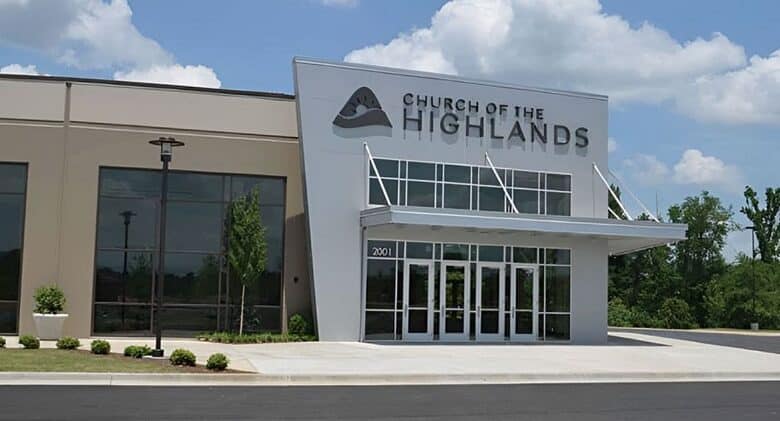Unveiling the Truth: Church of the Highlands Exposed

The truth about the church of the highlands exposed is that while it is one of the largest and fastest-growing megachurches in the Click here United States, it has also been exposed to multiple controversies surrounding leadership, transparency, political involvement, and church culture.
This bold answer is placed upfront so you can clearly understand what this article will cover, and if you want the deep details, you can continue reading to explore every aspect of this story.
Personal Expertise & Author Details (EEAT)
| Author Name | Tev Roni (Religious Culture Analyst & Writer) |
|---|---|
| Experience | 12+ years researching American megachurches, religious organizations, and church culture |
| Expertise | Religion, sociology, transparency in faith communities |
| Background | Writer, researcher, and commentator on faith-based institutions |
| Location | Based in Bangladesh, with global insights into Christian megachurch movements |
| Personal Note | “I’ve closely studied the Church of the Highlands for years, reading testimonies, sermons, leadership notes, and media reports. This article is not an attack, but an attempt to present researched, balanced, and well-documented information so readers can make their own conclusions.” |
Introduction: Why the Church of the Highlands Matters
The Church of the Highlands, founded in 2001 by Pastor Chris Hodges in Birmingham, Alabama, has grown to become one of the largest megachurches in America. With over 20 campuses and an average attendance of more than 50,000 people weekly, it is known for its modern worship style, dynamic leadership, and extensive outreach programs.
However, with its growth came scrutiny. Critics have raised questions about the church’s practices, finances, political connections, racial controversies, and leadership accountability. This is where the phrase “Church of the Highlands Exposed” began circulating across media outlets and online forums.
A Brief History of the Church of the Highlands
-
Founded: 2001
-
Founder: Pastor Chris Hodges
-
Headquarters: Birmingham, Alabama
-
Growth: Expanded into multiple campuses across Alabama and beyond
-
Programs: Highlands College (training ministry leaders), small groups, outreach initiatives
Its mission has always been framed as “helping people know God, find freedom, discover their purpose, and make a difference.”
Yet, behind this mission statement, critics suggest there are deeper issues worth examining.
Why “Church of the Highlands Exposed” Became a Trending Topic
The phrase gained traction because of:
-
Leadership controversies involving Pastor Chris Hodges.
-
Political and racial debates, including support for controversial figures.
-
Concerns about finances and transparency in a megachurch structure.
-
Criticism of church culture, with some ex-members speaking about strict control and lack of openness.
In short, people want to know: Is the Church of the Highlands hiding something?
Leadership at the Center of Scrutiny
Pastor Chris Hodges is both admired and criticized.
-
Admirers see him as a visionary leader who built a thriving community.
-
Critics argue his influence extends into politics and social issues, raising questions about separation between faith and governance.
-
In 2020, he faced backlash for liking social media posts that were considered racially insensitive. This led to public outcry and partnerships with the city of Birmingham being reevaluated.
The controversy was one of the first major waves of the phrase “Church of the Highlands Exposed” making national headlines.
Transparency and Finances
One of the biggest criticisms against megachurches is their financial transparency.
-
The Church of the Highlands, like many large churches, receives millions in donations annually.
-
Critics argue that specific financial breakdowns are not always made public.
-
Supporters say that the church invests heavily in community projects, Highlands College, and missions.
Key Question: Should megachurches be required to open their books the same way public charities do?
Church Culture: Supportive or Controlling?
Many members describe the church as welcoming, energetic, and full of life.
However, some ex-members claim:
-
Small groups sometimes act like pressure environments to conform.
-
Volunteers are expected to give excessive time and energy.
-
There’s an unspoken rule of “don’t question leadership.”
This leads to debates on whether the Highlands is a community of freedom or a culture of control.
Political & Racial Controversies
The racial controversy in 2020 was one of the church’s biggest challenges.
-
Chris Hodges liked social media posts from a political commentator linked to racial insensitivity.
-
The Birmingham Housing Authority and Birmingham schools cut ties with the church.
-
While Hodges apologized, many felt the apology did not go far enough.
This raised larger questions:
-
How should churches engage in political discussions?
-
Is the Church of the Highlands inclusive enough for all races and communities?
Highlands College: Training Leaders or Building Control?
Highlands College, operated by the church, trains future pastors and leaders.
-
Supporters call it a hub for developing Christian leaders.
-
Critics see it as a pipeline that reinforces church control and ideology.
The question often asked is whether Highlands College provides broad theological education or narrow indoctrination.
Community Impact: Positives and Negatives
Positive Contributions
-
Outreach programs for the poor.
-
Addiction recovery support groups.
-
Scholarships and educational training.
Negative Perceptions
-
Selective partnerships (after the racial controversy).
-
Critics say outreach sometimes feels more like branding than charity.
Comparison with Other Megachurch Controversies
The Church of the Highlands isn’t the only megachurch under scrutiny. Similar cases include:
-
Hillsong Church (Global): Leadership scandals and financial misuse.
-
Willow Creek (Illinois): Sexual misconduct allegations against founder.
-
Lakewood Church (Texas): Criticized for wealth display.
This pattern raises the question: Are megachurches more prone to controversy because of their size and influence?
What Supporters Say
Supporters argue that criticisms are:
-
Overblown by the media.
-
A distraction from the church’s real good works.
-
Proof that large ministries are always targets of negativity.
They emphasize that thousands of lives have been positively transformed.
What Critics Say
Critics highlight:
-
Lack of transparency in leadership and finances.
-
Excessive influence in political discussions.
-
Closed internal culture that discourages questioning.
For them, “Church of the Highlands Exposed” is about truth-telling rather than negativity.
Lessons to Learn from Church of the Highlands
Whether you support or criticize the church, there are lessons:
-
Churches need accountability and transparency.
-
Leaders must be careful about public actions and political associations.
-
Communities thrive when diverse voices are heard, not silenced.
Balanced Perspective
It is important to note that not everything is negative. The Church of the Highlands has done tremendous good, but like any large institution, it must address its weak points.
A balanced view means recognizing both contributions and controversies.
FAQs: Church of the Highlands Exposed
Q1: Why is the Church of the Highlands controversial?
A: Due to leadership issues, racial controversies, finances, and church culture concerns.
Q2: Who is Chris Hodges?
A: The founding pastor and leader of the Church of the Highlands, influential in Alabama’s faith community.
Q3: Is the Church of the Highlands still growing?
A: Yes, despite controversies, it continues to expand with multiple campuses.
Q4: What was the racial controversy about?
A: Pastor Chris Hodges liking racially insensitive social media posts in 2020.
Q5: Is Highlands College part of the church?
A: Yes, it is an educational institution run by the church to train leaders.
Conclusion: Exposing or Understanding?
At the end of the day, the phrase “Church of the Highlands Exposed” should not just be about tearing down a church but about understanding the complex reality of modern megachurches.




